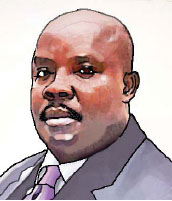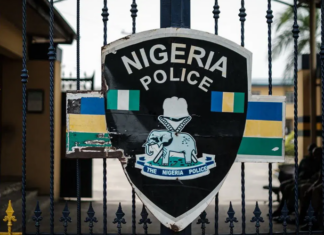By Emeka Alex Duru
You can call it Abiku, as in Yoruba folklore or Ogbanje, in Igbo version – the mythical ill-fated lad that keeps dying and being born, repeatedly. It can also fit in the allegory of the witch crying in the night and a child dying in the morning.
But it points to one direction – deception. That summarises the story of the Second River Niger Bridge and duplicitous attitude of successive Nigerian administrations on the project.
As in Abiku or Ogbanje that raises the hopes of the parents at birth and dashes same, as it dies shortly, the Bridge has become a weapon to lure, rape and dump unsuspecting Nigerians, especially from the East, by various governments at various time in the country’s history since 1970. As the 2019 general elections inch closer, the centre seems stage for the usual story on the bridge.
With the Federal Controller of Works in Anambra, Innocent Alumonah, recently claiming steady progress on works on the project, and subsequent declaration of interest for a second term by President Muhammadu Buhari, the Bridge, has again, become an issue for public discourse.
According to Alumonah, the early work stages of project are divided into four, stressing that the first three had been completed and the last phase, being pushed up to 44.6 percent. He added that by the time the last phase of the early stage would be completed, work on the main bridge would no longer take time. The explanation may not mean much to those without adequate knowledge in civil engineering.
But that, incidentally, was all that foot soldiers of the President needed to prance about in advertising the concern of the government on the people in that side of the country.
They go further in seeing the completion of the bridge, evidence of President Buhari’s sincerity in extending a hand of fellowship to the Igbo.
In contrast, critics have dismissed the claim, lumping it among the fleeting engagements of the administration that hardly go beyond propaganda level.
If anything, they, see in the slow pace of work on the project, continuation of policy of marginalisation that has been unleashed on the Igbo since the end of the Nigerian Civil War in 1970.
These narrow interpretations on the bridge, incidentally, prevail, even within government circles, one way or another. And that is where the crux of the argument is lost.
That, perhaps, informs why no administration in the land has given the project the attention it deserves.
The existing Bridge, was commissioned by the late Prime Minister, Abubakar Tafawa Balewa in December 1965 –his last public function before he was killed in the January 15 Military coup.
During the 1967 – 1970 Civil War, in an attempt to halt the rampaging Federal Troops, retreating Biafran Soldiers damaged some sections of the Bridge at the Onitsha end.
The facility was only put to use after the war, following remedial works. Even then, experts regularly warned that it was at the danger of caving in if nothing substantial was done.
In apparent response, the immediate past Goodluck Jonathan administration commissioned rehabilitation works on the bridge by making replacements on the sections that were damaged earlier. That provided some succour. But the stress lingers.
Before the intervention by the Jonathan administration, on account of steady increase in population, coupled with upsurge in economic activities and urbanization, the surge in human and vehicular traffic on the bridge, had begun to impact on it, gravely.
At a time even, civil engineers sent out alerts that the 11.9 kilometer exercise was sinking gradually. On occasions, especially during festive and yuletide periods, motorists are known to have spent hours at both Asaba, Delta State and Onitsha, Anambra ends of the bridge, to avoid many vehicles being on it at the same time.
That was when the need for constructing a second bridge became obvious. But like most projects that happen to be sited in the geographical East and its neighbourhoods, any stage in the project, has become a banner for political campaign and instrument of blackmail on the Igbo by successive administrations.
Ironically, even the Igbo and their leaders, who are being used as guinea pigs in this politics of deception, seem helpless or lacking in the ability to understand the intrigues at work.
This explains why presidential candidates of leading political parties who desire to be seen or noted by the south east, usually humour the voters in the region with vague promise of building the Second Niger Bridge, if elected or re-elected.
While former President Olusegun Obasanjo sought his re-election in 2003, he made show of the exercise by commencing his campaign at the Onitsha end of the proposed bridge. As he rolled out empty promises on the project, it rankled to see the then south east governors, literally falling over one another for photo opportunities with him.
Nothing was of course done on it by the administration. Even Jonathan who feigned affinity with the people by adopting deceptive names of Ebele and Azikiwe, did not do much on the project.
It was therefore against that background of doubt that the people viewed the Buhari administration, when, on October 20, 2017, during the campaign of the All Progressives Congress (APC) candidate in the Anambra governorship election, Tony Nwoye, the Vice President, Professor Yemi Osinbajo, reportedly told his audience that the Federal Government had released the sum of Two Billion Naira from the Sovereign Wealth Fund for the project.
On account of similar declarations in the past that had not been matched with actions, the remark did not attract expected ululation from the people.
But that is not the issue. In fact, what rankles the most is the usual tendency at presenting the construction of the Second Niger Bridge as favour to the Igbo. Nothing can be farther from the truth. And those that make the offer, know that they are merely selling a dummy.
Truth be told, the River Niger Bridge, is not a project for the Igbo. It is a Nigerian project for Nigerians. Every Nigerian on either side of the facility, bears the same burden of neglect resulting from Government’s insincerity on the project.
In abandoning the Second Niger Bridge or playing politics with its construction, it is the nation and its economy that count the loss.
Also, fixing the facility that will serve as a major link for the larger geographical east, south-south, parts of the north and south west, cannot and should not be seen as favour to the south east or any geo-political zone.
Economic benefits of the bridge, ease of movement and general good of the people, should be the major considerations in ensuring that the project is done.
Alumonah even stated it better. “The Bridge is a link road to all parts of the country, not just the South East. It is not a bridge only for the southern part of the country. It is for all Nigerians”, he said.
What else can one add?













